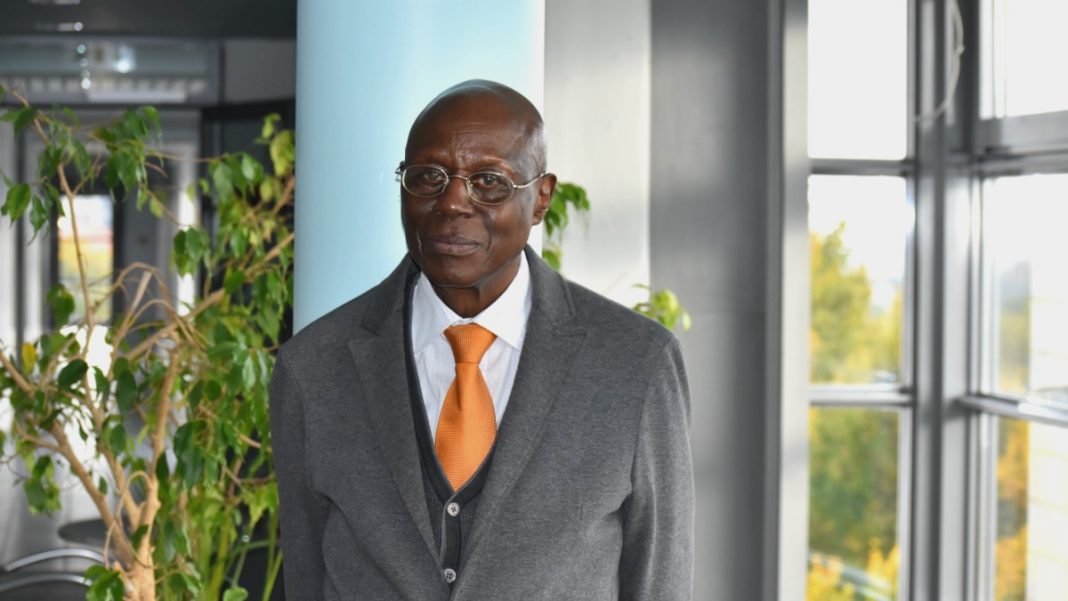Encomiums have been pouring for one of Africa’s finest theologians whose books are an irresistible menu in libraries of various major seminaries across the African continent.
Aged 83, Father Professor Bénézet Bujo, professor emeritus of the University of Fribourg, Switzerland, who hails from the Democratic Republic of Congo (DRC) is praised as a pioneer African Theologian whose works constitute a reference point for generations of budding theologians across the continent.
In a moving tribute, the Faculty of Theology of the University of Fribourg which showed “indebted to the deceased with great gratitude,” grieved that “the Churches of Africa are not the only ones to owe a lot to Bénézet Bujo; [but] French-speaking and German-speaking theology” as well.
The “man is a multidimensional being” – Faculty
The faculty prayed that he finds “in God what he has always insisted on” while describing him as a “man [that] is a multidimensional being, who is not only individually composed of a body and a soul, but who, as that part of an integral world, finds its fulfilment only in the network of life of ancestors and descendants, these unknown saints, living in God.”
Bujo’s works tried to reconcile the individual and communal aspects in African communitarian ethics while offering a vision of African theological imagination.
During a requiem Mass presided by the bishop of Lausanne, Geneva and Fribourg, Rev. Charles Morerod, which held on Nov. 25 at the parish church of St. Thérèse, Fribourg, encomiums were showered on the foremost African theologian.
Born in 1940 in Ituri province, northwest DRC, Fr. Bujo studied for his license in philosophy and theology at the Major Seminaries of Murhesa (Bukavu), Niangara (Isiro) and Lovanium University Kinshasa, under Belgian rule.
After working in parish ministry following his priestly ordination in the Diocese of Bunia, DRC, he undertook his doctoral studies at the Julius Maximilian University of Würzburg (1978- 1983).
Between 1983 and 1988, Bujo lectured as a fulltime professor at the Faculty of Catholic Theology of Kinshasa, now Catholic University of Congo.
He was then appointed as the German-speaking chairperson of moral theology, social ethics and African theology, Faculty of Theology, University of Fribourg until his retirement in 2010.
In 1985, he served as the first visiting professor of ‘Theologie Interkulturell’ at the Department of Catholic Theology at Goethe University in Frankfurt am Main.
The late university don taught numerous courses in Europe and Africa – he was a visiting professor at Saarbrücken, Nairobi, Lund, Johannesburg and Antananarivo (Catholic University of Madagascar).
According to the University of Fribourg, his research has always searched for an ethics from African perspective which seriously takes into cognisance deep human relationships, a profound connection with deities and descendants as well as God, the foundation of all truths and spiritualities.
Upon his retirement, Bujo became a theological advisor for Caritas Africa serving from 2011 to 2015.
On his intellectual and academic legacies, the University’s faculty of theology underlined that “The philosophical background was provided by the great authors of European scholasticism, but also and in particular by the discourse ethics of Jürgen Habermas, which he however significantly expanded with the concepts of an ‘ethics,’ ‘Consensus’ or an ‘ethics of palaver’ of African origin. In this way, he succeeded in formulating an authentic African Christian ethic, which made him known well beyond Fribourg. His numerous publications in German, French and Swahili bear witness to this.”
Despite his demise, the academic would be remembered in print because of the various the books he published some of which include – African Theology in its Social Context (1992), African Christian Morality (1990), Foundations of an African Ethic (2001), God Becomes Man in Black Africa (1995), The Ethical Dimension of Community: The African Model and the Dialogue Between North and South (1998), Introduction to African Theology (2008 & 2021), African Theology: The Contribution of the Pioneers (2003, 2006 & 2013).
Bujo offered a vision of African theological imagination
In his tribute titled, “remembering Bénézet Bujo, who offered a vision of African theological imagination,” a professor of systematic theology at the University of Portland, Oregon, Simonmary Asese Aihiokhai maintained that “though Bujo has joined the community of ancestors who surround Christ, the proto-ancestor in the heavenly village, his role as an African theologian and social ethicist serves as a beacon of inspiration for emerging African theologians as they attempt to do theology from their locus of existence.”

Aihiokhai further urged all to emulate “the approach of Bujo allows for an African theology that has an African palaver being, an African face, an African voice, an African heart, an African logic, an African hospitality toward otherness and an African praxis of life lived out in the domain of ubuntu consciousness.”
On his part, a Catholic Priest and Professor Ordinarius of contextual theology at the Pontifical Urbaniana University, Rome, Fr. Francis Anekwe Oborji observed that “For Bujo, through commentaries on biblical texts, Aquinas developed a whole method of doing theology rooted in symbols, analogy and metaphors, closer to the Fathers of the Church and to African thought.”
In his eulogy, “Tribute: Bènèzet Bujo: A Pioneer Systematic African Theologian,” Oborji stressed that, the great theologian “has made the greatest contribution of his Christian witness as a theologian and African, to the Church’s evangelizing mission in Africa, in the area of inculturation of the Christian Message in the continent and the world at large.”
Father Professor, Bénézet Bujo died on Nov 9 at the Fribourg Cantonal Hospital Switzerland, after a protracted illness.
According to family sources, his mortal remains would be transferred to his homeland DRC for a formal funeral at a later date.
Justine John Dyikuk, a Catholic priest, is a Lecturer of Mass Communication, University of Jos-Nigeria, Senior Fellow, International Religious Freedom Policy, Religious Freedom Institute (RFI), Washington DC and PhD Candidate, University of Strathclyde Glasgow, United Kingdom.
The opinions expressed in this article are solely those of the author.







